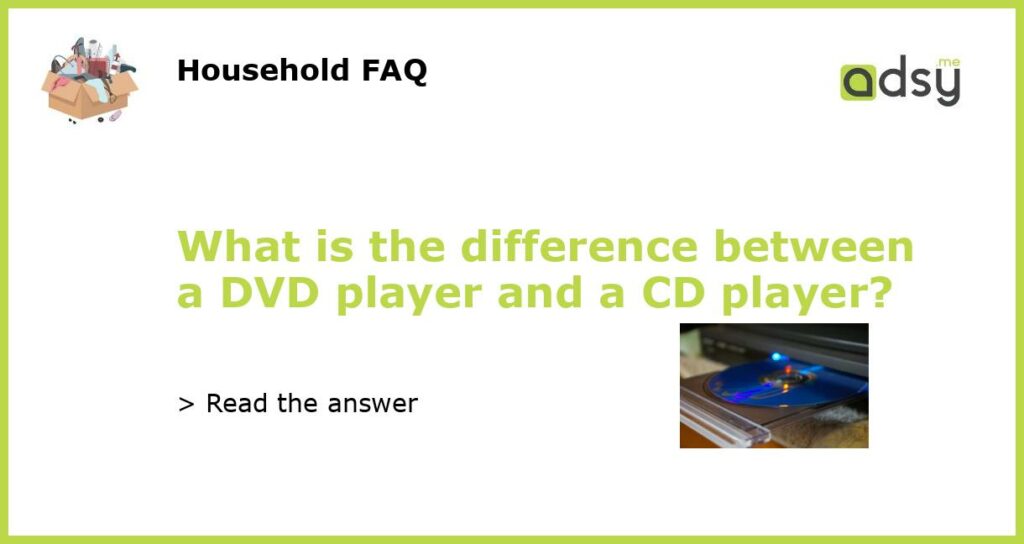DVD vs. CD players: Understanding the Major Differences
When it comes to media players, many people often confuse or interchangeably use the terms DVD and CD players. However, these two devices have numerous differences that make them unique in terms of their use and functionality. So, what exactly sets these two players apart? Here are some of the major differences between DVD players and CD players:
Disc Size and Storage Capacity
The most distinguishable difference between DVD and CD players is their disc sizes and storage capacity. Typically, a DVD has a diameter of 12cm while a CD has a diameter of about 8cm. Additionally, while CDs can store up to 700MB of data, DVDs can hold more than six times that amount, with a capacity of up to 4.7GB for single-layer DVDs and up to 8.5GB for dual-layer DVDs. This larger storage capacity allows DVDs to store more data, including high-quality audio and video content.
Playback Quality
Another significant difference between CD and DVD players is the playback quality. While both players use laser technology to read data from their respective discs, the quality differs. A DVD player’s laser is more powerful than a CD player’s, allowing it to read more detailed information from the disc’s pits and lands. This means that DVDs can offer higher video and audio quality that is not possible with CDs.
Compatibility
CD players are known for their compatibility with a wide range of audio formats, including both commercial CDs and homemade CDs that use MP3 or WMA audio standards. DVD players, on the other hand, can only play audio or video content from DVD discs or CDs, but not from MP3 or WMA files burned onto a CD-ROM. Additionally, not all DVD players can play recordable DVDs or CDs, so it’s important to check the player’s compatibility before purchasing a recordable disc.
Price
As with most tech devices, the price is a significant difference between these two media players. CD players are generally less expensive than DVD players due to their less complex technology and lower production costs. DVD players can be more expensive, especially those with advanced features such as upscaling or upconversion, which enhance standard-definition video to high-definition quality.
While both CD and DVD players may seem similar on the surface, they have many differences that set them apart. DVD players are more advanced than their CD counterparts, with larger storage capacity, higher playback quality, and enhanced compatibility with newer audio and video standards. However, CD players are generally less expensive and offer better compatibility with various audio formats. Ultimately, the choice between these two players depends on your needs and what you plan on playing on them.






